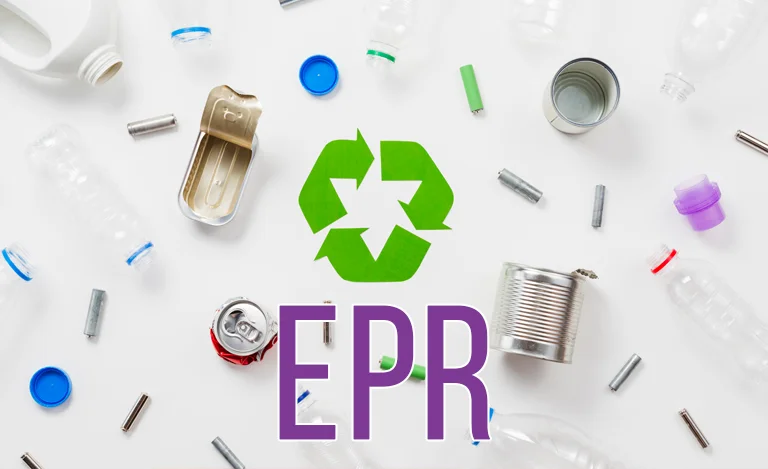What Is EPR And What It Means For Your Business?

Considering that every year, we produce plastic waste equivalent to the weight of the entire human population, there has been a dire need to promote responsible waste management. EPR is a step in this direction.
The term EPR stands for Extended Producer Responsibility.
Under EPR, the responsibility of recovering, recycling, reusing, and proper plastic waste disposal stands extended to those who produce and release it into the markets. So it includes brands, goods producers, importers and packaging companies, etc.
EPR relates to a product’s complete lifecycle and holds the producer or brand answerable for the correct and environmentally supportive management of the products they produce. It starts from the time the product is conceived and manufactured till its end of life – which means when the end-user has finished using the product.
EPR guidelines have been announced under the PWMR 2016 amendment 2018.
HOW DOES EPR WORK?
To streamline the proper and timely collection of waste, recycle, and correct disposal, the Government has approved waste collection agencies, recycling organizations, or recyclers. They will perform these responsibilities on your behalf and charge you a fee. Such companies are called PROs or Producer Responsibility Organisations.
Once done, they will award you a completion certificate that states the exact quantity of plastic waste your company has recycled. Currently, waste recycling targets have been set at 30% and may increase over the coming years.
Say, for example, your company produces about 100 kg of plastic in a year. Now, under EPR, the responsibility lies on you to collect and recycle at least30% of this plastic material, which comes to 30 kg.
Similarly, if you have sold, say 10 kg worth of plastic to your customer, they must also recycle 30% that is 3 kg (to fulfil their responsibility). On completion, they will give you a certificate which means, now you have to recycle only 27 kg since 3 kg has already been done on your behalf.
Hence, in this way, ERP creates a consistent and ongoing cycle of responsible waste management. It ensures that whoever produces plastic also recycles it, and plastic material gets recycled throughoutthe supply chain.
It will slowly reduce the plastic waste management problem that is growing daily.
EPR, THE CLOSED-LOOP SYSTEM
EPR is primarily a closed-loop system of waste management in which the discarded wastes are carefully collected, recycled and reused to make new products. Doing so not only closes the loop on waste but also leads to a remarkable reduction in energy usage and production costsfor new products.
Hence, the purpose of EPR goes beyond better management of plastic waste at the end of life. By holding the producer responsible for the products they manufacture, EPR serves as a constant reminder about the impact of plastic waste. In some ways, it acts as an incentive to innovate, think outside the box as well as create a greener, environmentally-friendly products and packaging.
CLOSING THOUGHTS
Today, EPR has become a global system for better plastic waste management throughout the world. And it is growing to include more and more products such as portable batteries, tyres, electronics, end-of-life vehicles, paper, furniture items and much more.
Though it is still early to say how well this system is adopted, its contribution towards the reduce-reuse-recycle principle cannot be denied.
Whether you choose torecycle your products and the packaging yourself or work with aPRO to manage your recycling responsibility on your behalf, EPRis a step towards extended product life cycles and creating a sustainable environment.
Do you want to know how EPR will affect your business? Feel free to book a discovery call with me at www.chetan-jain.com, and I will be happy to assist you.
